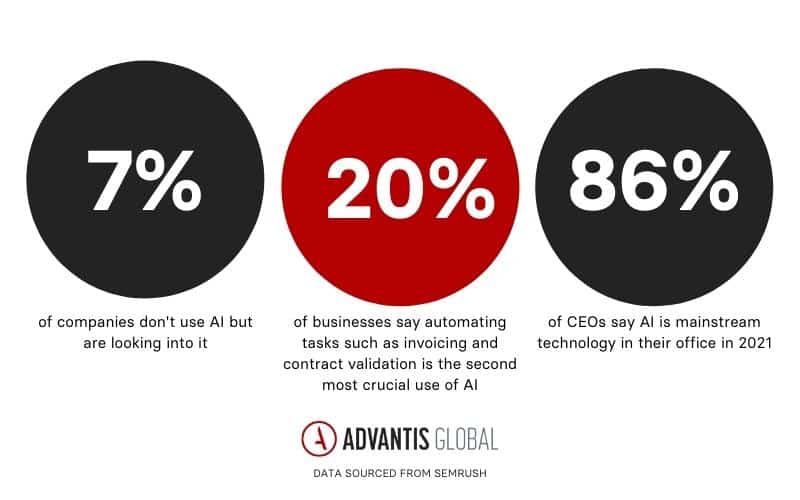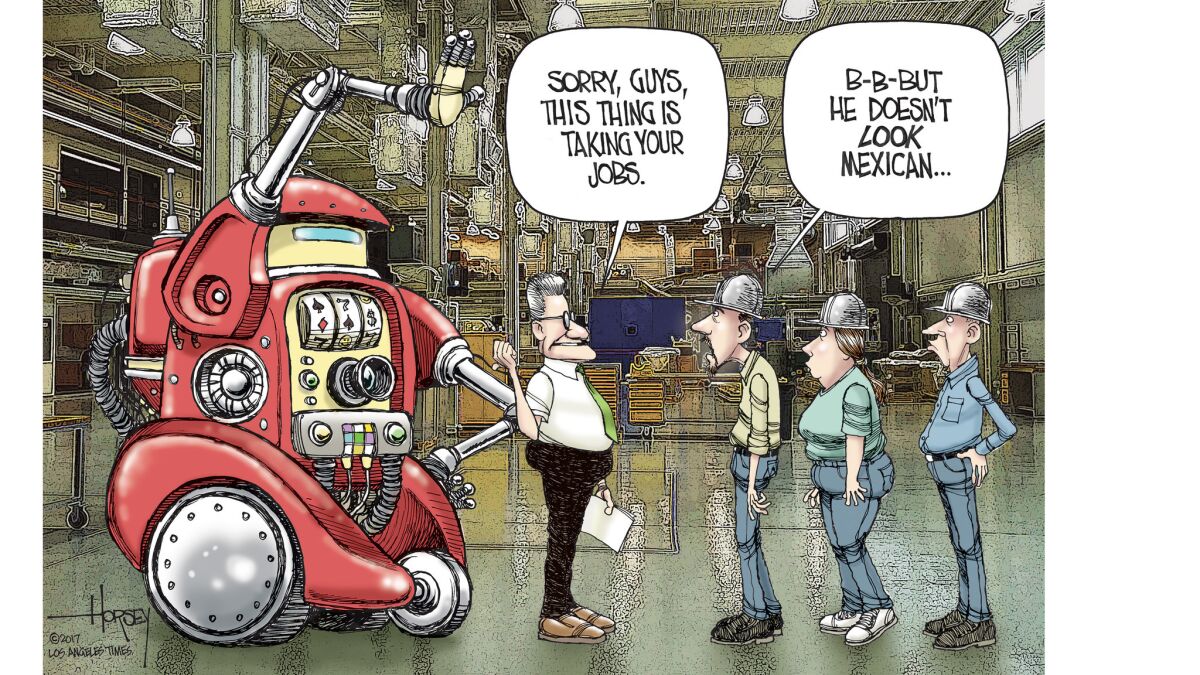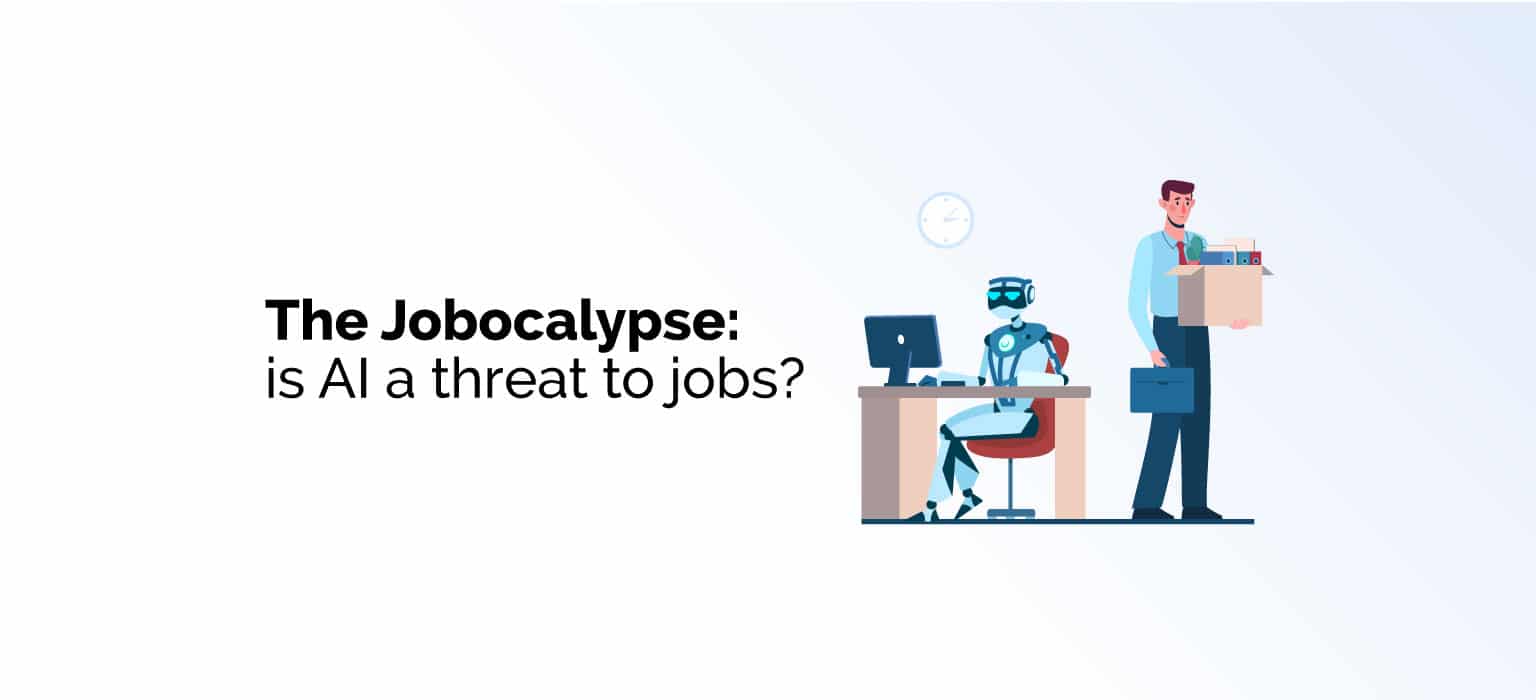There’s a fat chance that you were supposed to be working right now, but here you are, reading what I have to say. This would’ve never happened if you were an AI – just saying. And another guess is that the title caught your attention because you want to know if AI really poses a threat to human jobs, right?
Well, specifically you want to know about AI being a threat to your job, but nonetheless. AI wouldn’t be this egocentric either; AI leads 2-0 for now.
The hype of ChatGPT is unmatched and there have been concerns that it will start replacing a lot of human jobs as well. Given AI’s ability to memorize steps, it is highly likely that it will gradually replace certain commonly performed jobs in the future
Is AI really a threat to jobs?
Are people’s jobs genuinely at threat due to AI, or is it merely hype intended to drive people to work harder? Welp, guess we have to work harder.
Although this is not the first time that such changes were happening in the very colorful history of mankind. This time, however, it’s different because of the impact that AI has had since November.
According to a report by Goldman Sachs bank, it is said that technological advancement can replace a quarter of the tasks of workers in the United States and Europe but also means the opening of new jobs and new space for productivity.
The Goldman Sachs report also mentions that the impact of artificial intelligence will vary depending on the sector – 46% of administrative jobs and 44% of jobs in professions related to the law will be able to be automated. In the construction sector and maintenance, however, such replacement may affect 6% and 4% of jobs, respectively
According to the report, 60% of people today have jobs that did not exist in 1940.
So, to discuss this topic, we need to consider several factors since the skill and high level of AI do not necessarily mean danger but only a change in the labor market. There are some job positions that can be sensitive, and that can be repetitive or routine work.
It’s also worth noting that the placement of AI in specific roles may change based on industry, technological advancement, and the demands of humans to interact. This doesn’t answer the question of whether AI is a threat to jobs, does it?

Jobs risked by AI replacement
The fact that AI is coming to replace a lot of human labor comes as no surprise to anyone now. It has become increasingly evident that AI’s role in job displacement is a reality that cannot be ignored – and it’s already happening. There are simply some jobs that are just more prone to being replaced by AI.
AI is the biggest threat to these jobs:
- Data entry
- Customer Service
- Financial analyst
- Teachers and tutors
- Content writers and Copywriters
Data entry
Data entry jobs, though boring as can be, are still vital to companies by manually putting information into systems. These jobs are, in my opinion, the most at risk of being replaced by AI algorithms, which are more than capable of doing the job. With the increase of AI, machines can handle large data input tasks at a faster rate and at better accuracy.
What has to be taken into account though is the cases of overreliance on AI systems. There will for sure be cases where the system encounters an error or glitch which would require human intervention. Additionally, AI struggles with contextual understanding which can result in some unexpected errors.
Customer service
We can actually see the slow but steady integration of AI chatbots into websites with the aim to replace the human touch on Customer service completely. One of the benefits that help AI overtake humans in this job is the 24/7 availability. AI doesn’t have to go to a kid’s birthday, attend a wedding, or take a two-week leave to hit the beach. It’s always there, and always keen to help.
The downside of this conquering would be the lack of empathy and emotional intelligence. More often than not, users open up the customer service chat to rather talk more and understand what they’re dealing with as sometimes it’s unknown. If the user tells ChatGPT “My file is not uploading”, the response would be one of X sentences, while the human would probably dive a bit deeper into questions.
Financial analyst
Another hit will be the financial analysis section. Despite their amazing expertise, they are at risk of being overshadowed by AI algorithms that are able to analyze vast amounts of financial data. And they do so with greater speed and greater accuracy as well. The fact that the job is kind of destined to be automated puts the traditional role of human labor in danger.
But, you would have to take care of the risk of oversimplification and reliance on quantitative metrics alone. Humans have something better in hand in this field such as considering qualitative factors, industry knowledge, and market trends which can slip away from AI.
Teachers and tutors
Teachers and tutors are no exception as well. AI-powered virtual tutors and online learning platforms have taken the internet by storm and growing each day. The key here is personalized learning targeted to specific individuals. These systems are designed to understand the needs and requirements of specific students and pupils, endangering the traditional system of one teacher having multiple students. Furthermore, AI can simulate interactive and immersive learning environments, making education more engaging and accessible.
The downside is the human touch and the empathy that only teachers have, obviously. Teachers are specifically ‘designed’ to possess empathy, and emotional intelligence, and understand human nature in all nuances. They provide guidance, and motivation, and offer a nurturing environment for teaching – something AI can never replicate. Also, there will be the need to detect AI-generated text, which will be a burden to the teachers.
Content writers and Copywriters
To be honest, when I first encountered ChatGPT my immediate thought was how the online writing industry will be in so much trouble. I mean, why go through the trouble to first find someone decent to write? And then find out if they specifically understand what your writing needs are. I already have a ChatGPT which can generate coherent and grammatically correct content based on predefined parameters.
Despite ChatGPT being awesome in providing lots of content, it will always lack certain aspects that only true human writers can offer. Human content creation involves deep human emotions, cultural nuances, and the ability to connect the reader with the written content.
Why could AI replace these jobs?
While we are talking about AI and the threat it is to human jobs, on the other hand, there are also benefits for the employer in case he hires AI instead of a human.
From the employer’s point of view, hiring an AI has several potential benefits and makes total sense.
In addition to cost, employing an AI increases efficiency and productivity in jobs as AI systems can perform tasks faster and with greater accuracy alongside humans. Increased efficiency can lead to improved productivity allowing the employer to achieve this in less time – more money, less work.
Depending on the nature of the task, the use of AI can result in cost savings for the employer.
Read also: ChatGPT and Cybersecurity – Friends or Foes?
Let’s take an example: If we use AI chatbots for customer support, it can reduce the employer’s need to hire and train a large customer service team.
Likewise, with the employment of AI, the rate of errors can be lower since AI systems have the ability to minimize human errors that come as a result of fatigue and distraction. Reducing these errors can lead the employer to cost savings while minimizing rework and financial losses.
In addition, AI systems can easily scale and handle workloads without the need to hire or train additional staff, providing the flexibility to meet demands at no additional cost.
AI systems can simplify operations and allow people to focus on more complex and strategic activities, which leads to more efficient work. AI systems such as chatbots have the potential to provide faster responses and 24/7 availability resulting in customer loyalty.

Is AI creating more jobs or destroying more jobs?
The impact that AI has on job creation and destruction is a complex and debated topic. Some believe that with the power that AI has, we’ll have some brand-new job openings. Others believe that the average human being will be easily replaced by AI and thus become jobless.
However, let’s look at both of these options as being right.
AI is creating more jobs
Let’s reason why AI is creating more jobs than it’s destroying. AI technologies will only keep on evolving and taking up more and more of our daily lives, true. But, someone has to run these algorithms, right? This all requires skilled workers who are there to develop, implement, and maintain these systems. This results in creating a demand for jobs like AI specialists, data scientists, and engineers.
Also, AI will most likely only take over jobs that can be covered by automation. By doing this, AI is only allowing humans to focus on more creative and complex work. Specifically by doing this, new job roles will emerge. Jobs like “AI trainers” or “Explainability experts” will make sure that these systems will thrive and also be within ethical and responsible guidelines.
AI is destroying more jobs
On the other hand, here’s why AI is destroying more jobs. As AI systems will become more and more advanced each day, they will be able to perform tasks that were traditionally only done by humans. This automation will most likely result in job displacement, especially in industries like manufacturing, transportation, and customer services.
Robots will most likely in the next 5 years be able to travel internationally without any problems.
Just to put it into perspective: you’re a CEO and have two options
a) Hire an agency and go through bureaucratic processes, tell them where to get loaded and unloaded, and involve possible human errors
b) Hire a robot to do it for you just by telling them where to get loaded and unloaded
Which one are you choosing?
Robots will also likely replace humans in the manufacturing process. Well, to be fair, it kind of already started. A Chinese factory in Dongguan City replaced 90% of its employees with robots which led to a whopp[ing 250% increase in productivity and an 80% drop in defects.
Note: This article is purely my opinion and does not state the viewpoint of Crossplag.

Agnesa is crazy about math and has won lots of prizes. Although her main gig is being a full-stack developer, she also likes to write about topics she knows really well.
But, Agnesa isn’t just about numbers and algorithms.
When she’s not crunching code or weaving words, you’ll find her conquering mountains with her trusty hiking boots!

